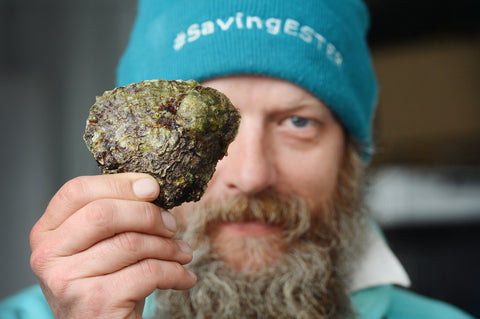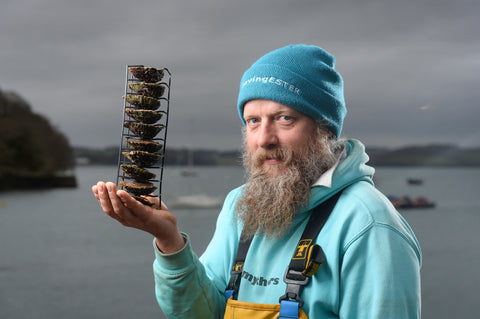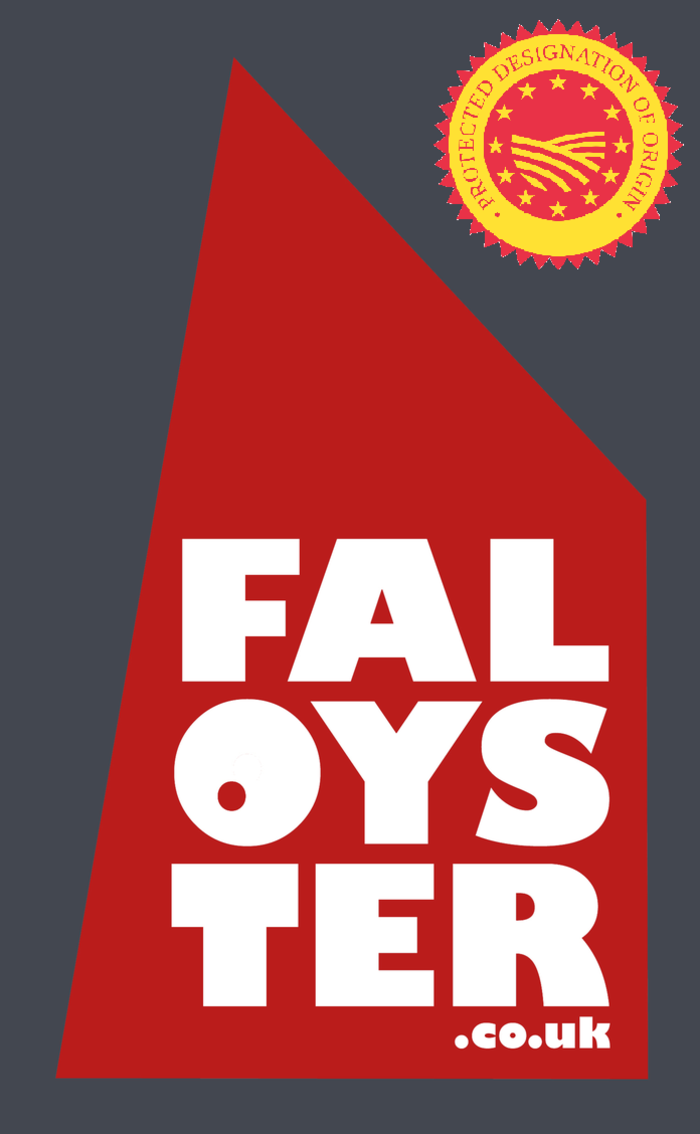A million things to do this summer... June 11 2020
Despite the ‘end of the native oyster season’ on the wild Fal Fishery, between Truro and Falmouth in Cornwall, and the UK’s lockdown in March, work has continued tirelessly and unpaid for two men down at Mylor Yacht Harbour.

After a month of putting the @SavingESTER concept together in January 2020 (‘ESTER’ is Cornish for ‘oyster’), followed by a two month campaign through Crowdfunder in February/March and a nail biting finish to reach the ‘all or nothing’ target of £8755, which was achieved with just two days left, the founding director Chris ‘Ranger’ and the new non executive director Zane Dutton-Tompson of the Fal Fishery Cooperative CIC (Community Interest Company) have pulled out all the stops to deliver on its promise to those that supported the campaign and build a ‘micro shellfish hatchery’ inside the Fal Oyster Ltd. Purification Centre at Mylor, known as Cornish Native Oysters.
Ranger explains “having got off to a great start with the funding in February I really wasn’t sure if we would reach the all or nothing target, especially when I had to cancel the 10 year celebration of the end of season Pop Up Gatherings at Skinner’s Brewery Tap – The Old Ale House due to COVID” he went on to say “it was a devastating decision, Steve Skinner had sponsored the very first Oyster Gathering in 2010 and had kindly offered the indoor venue to celebrate 10 years, I had 3 chefs coming from London to host a Dinings Japanese Sushi Pop Up Restaurant, also Rosie Vanier was booked to perform on the Sunday to celebrate the start of British Summer Time and all profits going in at the end of the fundraising campaign”. But luckily with the help from Cornwall Marine Network who secured two small grants for the CIC and Fal Oyster Ltd. Ranger managed to loan the campaign enough to get past the target, just in time.
The funds finally arrived in early April but of course almost all businesses were closed and staff were furloughed. “It took a lot longer to get the equipment ordered and delivered, but by mid May we were almost there” says Zane. “After a few weeks of preparing the 20ft shipping container, including a whole new electrical installation by a local sole trader who worked on his own one day, the set up was all but complete.”
As Ranger explains “there is a lot more to the native oyster and its reproduction cycle than you might think and unfortunately we were not quite ready for the new moon in May. However, we think we are now ready to start the first trial and I am sure it is going to be a steep but very exciting learning curve for the next 2-3 months”
Ranger and Zane are preparing to initiate the first hatching of Cornish Native Oysters on the next new moon, June 21st the summer solstice, from brood stock that Ranger gathered himself aboard his boat the ‘Alf Smythers’ during the 2019-20 season. “I have done all the scientific research I can for the past year and fingers crossed we have all the necessary equipment installed thanks to the support from the 80 or so people that donated in phase 1, so it is time to get on with the hatchery and spatting ponds to hopefully help at least a million oysters survive the larvae liberation stage and metamorphosis through to spat (baby oyster) of about 5mm” states Ranger.

But that’s not the end of it as he has now launched phase 2 of the campaign, “in July 2019 we secured the only Aquaculture Site that was available on the River Fal and thanks to the National Lobster Hatchery Padstow we have enough growing trays to start our nursery area, but now we have to raise the funding to install the infrastructure: moorings, ropes, buoys etc. so then we can relocate the 5mm spat to their natural habitat and study the growth for the next few years, while stored the new biomass should also increase the natural genetically strong population too”.
Unfortunately the CIC has been unsuccessful with 5 grant applications in the past year, mostly because assessors do not understand the threatened populations of the species with 85-95% of world wide stocks already gone, nor the strict regulations on marine habitats. Ranger says one very time consuming and well drawn up bid to the Seafood Innovation Fund was ‘unsuccessful’ based on the panel thinking it was “cheaper and easier to buy English or French seed (spat) and relay it on the fishery” but as he warns “importing spat or juveniles from anywhere else has huge biodiversity risks, even if we were allowed to relay them on the Fal! And it seems totally wrong to expect someone to pay for new seed when the Fal Fishery has one, if not the last, natural native oyster population in England, maybe UK, maybe even Europe. If the Fal oystermen cannot make that population self sustainable then something is very very wrong! Writing the bids without paying myself also meant I missed out on any self employment support too”
Ranger believes “the Minimum Landing Size of 2” 5/8ths (67mm), which hasn’t changed since 1926, is destroying the biomass on the fishery, that and the fact the 2-4 year old juveniles are mostly exported to fisheries in France or by a few oystermen to Colchester Oyster Fishery, to grow on, so leaving before they have fully matured and reproduced which is unfathomable” he says “plus Cornwall is missing out on the true economic value of the prized sail boat gathered locally produced processed packaged PDO Fal Oyster (Protected Designation of Origin). I only harvest after oysters have reached a marketable weight, therefore have reproduced several times. Hence the desperate measures I am delivering to try and balance my own sole livelihood as an oysterman and PDO merchant, with the utmost importance of the species and the biodiversity it creates within a marine habitat such as the unique Fal Fishery.”
Unlike most of you reading this, Ranger and Zane missed out on furloughed wages as the CIC was still raising the funds to start employing and registering for PAYE when the lockdown started, both the Ltd and CIC companies were not eligible for the Small Business Grants and ‘aquaculture’ wasn’t happening in 2018, so neither have received a penny of COVID government support. The sailboat, which is exempt from fishing vessel registration, wouldn’t have qualified for fishing support even if it had landed the sort of value that a few other oyster boats did in 2019.

So, if you have survived the lockdown and your families are all safe and well, please spare a little time to read the now ‘always on’ campaign www.crowdfunder.co.uk/savingestertheoyster and if you can spare a few pounds please donate to help the CIC with phase 2 of the @SavingESTER project, in turn Ranger and Zane finish by saying “we are still aiming to achieve the million things we have set out to do this summer, with at least 1,000,000 Cornish Native Oysters being hatched, reared and hopefully surviving the all important first few months, before heading up river to the Aquaculture Site nursery, so please help us with installing the infrastructure before #SavingESTER needs a home!”
Christopher Ranger
